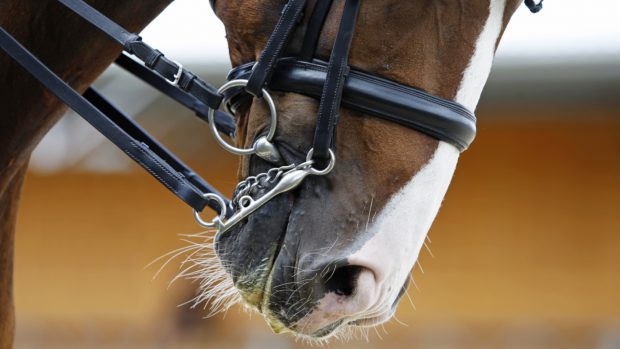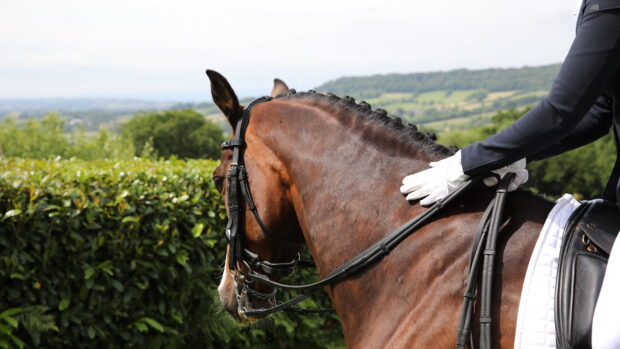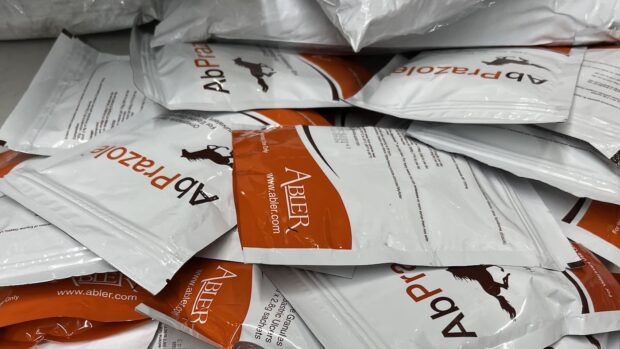We must “be aspirational”, work together and use involving horses in sport and leisure to improve their lives.
These were the key messages from a panel discussion at the 2024 World Horse Welfare conference on 7 November.
The theme was “What is a good life for a horse?”, and those on the panel considered this from a range of perspectives.
Asked what the equine sector can learn from others, Battersea Dogs & Cats Home CEO Peter Laurie explained how Battersea has changed to take in updated knowledge about welfare, such as allowing its residents to make choices.
“I was really struck by what’s just been said on the importance of choice,” he said. “I’d go as far as to say you can’t provide a good life for an animal, if you don’t allow it to make some degree of choices on a day-to-day basis.”
He said, for example, that the cats can choose to interact with staff or hide, they can choose their food and bedding.
Former British Equine Veterinary Association president Lucy Grieve said: “I think a lot of the research is done outside the equine sector, but we’re catching up, hopefully. I think it’s important to draw information from other sectors, but not to extrapolate directly. Every species has its own needs and differences, but we must be part of the conversation in a wider scope, to direct us in the right direction.
“It’s a case of habits changing. I see a lot of owners who just do what they’ve always done, and they don’t want to change. But if you can help people see the positive effects of learning and changing and evolving, they see the rewards.”
British Horse Society chief operating officer Sarah Phillips asked how we can balance the desire to compete with giving horses choices.
“It’s tricky, there’s a balance,” Ms Grieve said. “We have to accept that sports competitiveness is something humans get a lot of enjoyment out of, but we’ve got to try to understand better what aspect the horses need to benefit them, and how we can change things.
“The day of competition is just one piece of the puzzle. What goes on in between competitions and from birth, even in utero – that whole story has to be tailored better towards what horses need to give them a better life.”
Enhancing performance
Major Dan McRink, regimental veterinary officer for the Household Cavalry, said people need to realise that good welfare does not make winning less likely; far from it.
“Farming has got very good at recognising that good welfare leads to good productivity and profitability,” he said. “Horses having a purpose, work, performance or companionship, that’s what drives their welfare. It gives them a place in our society, our culture, and celebrating the fact we give them a purpose which leads to good exercise and good mental stimulation. It should be a way of driving good welfare.”
Asked what has to change to ensure horses in sport have a good life, Grand National-winning trainer Lucinda Russell said horses who are relaxed perform best.
“If we can educate other trainers, in racing and showjumping and eventing, that when a horse is happy, it will perform better,” she said. “These things aren’t just for ‘pony patters’; not ‘isn’t it nice they’re all grazing together’, but if a horse grazes together, is outside, it will perform better. I always say, ‘Let’s look at the horse.’
“We’ve got scanners, a video thing that tells us which leg it’s lame on. But if we can’t look at a horse and tell that it’s lame, we’re failing them. We have to be able to identify in a horse what’s good health, and whether they’re happy or not.”
The panel was referred to mainstream media coverage of horse sport, including a headline asking, “Is it time to ban dressage?”
But World Horse Welfare deputy CEO Tony Tyler said we have to investigate whether we are judging sport in the right way.
“Whether there are ways that good welfare and a relaxed horse and a good rider gain more points towards the final qualification, than just getting over the winning post,” he said. “I genuinely believe horses can be happy. I think if a rider can show a relaxed, happy horse, that should be rewarded.”
Missing the point
Ms Grieve said “banning” dressage is “kind of missing the point”.
“Dressage can be done well,” she said. “Like any discipline, it can be done well. We need to address why it’s being done badly and try to encourage those people to change to better ways.”
Maj McRink added that we should be as objective as we can and use evidence-based tools to measure and improve welfare, but as that develops, “subjectivity has a place; common-sense and good old-fashioned horsemanship.
“And just understanding what your horse is trying to tell you is very important,” he said. “We should collaborate. We should try to learn from each other’s mistakes and successes and we should, as best we can, be willing to recognise when something hasn’t had the desired effect and be prepared to change. I think we can be quite cynical about new techniques, and we need to get better at being prepared to try new things.”
The panel agreed that we should always challenge ourselves as to whether we are giving horses a good life, and how to improve.
Summing up, Maj McRink said: “There’s no shame in having horses work for us, as long as we use that as a positive experience. It’s important to remember that horses are individuals and finding them the right job is a key part of good welfare.”
Ms Grieve added: “It’s important to work together, to not throw mud at each other and to try to find a solution that works for everybody.”
“I think we should remain aspirational,” Mr Laurie said in closing. “Let’s keep challenging ourselves. Keep challenging the status quo.”
- To stay up to date with all the breaking news throughout major shows such as London International and more, subscribe to the Horse & Hound website
You may also be interested in:

What is a good life for a horse? We have to listen to – and act on – what they tell us

‘Seeing horses for what they are’ and giving them choices – to give them a better life

‘A good life for horses’: why equestrian sport’s future rests on all our shoulders, and what are the next steps

Subscribe to Horse & Hound magazine today – and enjoy unlimited website access all year round





